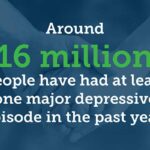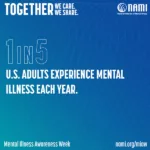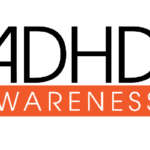Can Anxiety, Depression and Stress Cause Insomnia?

1 in 3 people experience problems sleeping at least one night per week
We’ve all had sleepless nights where we have spent the night tossing and turning. Maybe it was too hot, or you just couldn’t get comfortable. Whatever the reason, a lousy night’s sleep can leave you feeling less than your best in the morning.
Not sleeping well, not feeling rested, trying to function on an erratic sleep schedule, and not getting enough sleep can lead to a wide range of negative effects in our lives. The “brain fog” and mental dullness you feel the day after a poor night’s sleep can wreak havoc on mood, work performance, and motivation.
According to the CDC, 1 in 3 adults don’t get enough sleep.
Approximately 50% of insomnia cases are related to depression, anxiety or psychological stress. Stress, anxiety, and depression can cause sleeping problems or make existing problems worse.
What Happens When You Don’t Sleep
Most research suggests a bi-directional relationship between sleep problems and mental health. In other words, underlying mental health disorders can make sleeping more difficult. Poor sleep, on the other hand, can trigger or worsen mental health conditions such as anxiety, depression, and PTSD.
Some people believe that adults need less sleep as they age, but there is no evidence to show that older people require less sleep than younger people.
Most adults need 7-9 hours of sleep each night, but almost one-third of Americans get less than 6 hours of sleep each night according to the CDC.
The quality of your sleep is just as important as the quantity of your sleep. If you consistently awaken several times each night and have trouble falling back to sleep you may not be getting the quality or quantity of sleep you need.
Signs You Aren’t Getting Enough Sleep
- Excessive daytime sleepiness
- Difficulty concentrating, focusing, or remembering things
- Your productivity and performance is suffering
- Frequent yawning
- Irritability
- Weight gain or loss, with food cravings (such as craving sugar or junk food)
- Not feeling rested after a full night’s sleep
These general signs don’t even begin to scratch the surface of what consistently bad sleep can cause. All of the above-listed symptoms can cause serious problems in your personal relationships, as fatigue and irritability takes a toll on family members.
Not getting enough sleep can also negatively affect your performance at work, grades at school, earnings, and promotion opportunities.
Physically, chronic sleep deprivation can cause your immune system to become weakened, reduce your cognitive abilities, increase hunger signals (which can lead to weight gain as you’re too tired to exercise), and increase your risk of cardiovascular disease, cognitive decline, and dementia.
These physical side effects of lack of sleep can result in missing work, increased medical bills, stress, and anxiety.
Our Experienced Team of Psychiatrists Can Help!
We know that taking the first step can be difficult.
Our highly-trained psychiatrists and therapists offer a comprehensive and confidential approach to private, outpatient psychiatric care. Whether this is your first time seeking psychiatric care or if you are seeking a new provider, Novum Psychiatry can help. In-person and telehealth appointments available. We accept health insurance.

Why Can’t I Sleep?
Insomnia can have a variety of root causes and should be diagnosed by a medical professional. Some common causes of insomnia include medical conditions, pain, or psychological and emotional triggers. Women in perimenopause and menopause are particularly at risk of depression as well as sleep disturbances related to hot flashes and hormonal changes.
In fact, approximately 50% of insomnia cases are related to depression, anxiety or psychological stress.
Unsurprisingly, 90% of people with combat related PTSD experience symptoms of insomnia, according to the US Department of Veterans Affairs.
Anxiety Disorder and Sleep Problems
Depression, anxiety, and stress can all cause sleeping problems or make existing sleep problems even worse. Unfortunately, most research suggests a bi-directional relationship between sleep problems and mental health. In other words, underlying mental health disorders can make getting quality sleep more difficult. Poor sleep can then trigger or worsen mental health conditions such as anxiety, depression, and Post Traumatic Stress Disorder (PTSD).
Anxiety disorders are deeply correlated with sleep problems. Some common anxiety disorders with links to sleep deprivation and insomnia are:
- Generalized Anxiety Disorder
- Obsessive Compulsive Disorder (OCD)
- Panic Disorder
- Social Anxiety Disorder
- Specific Phobias
- Post Traumatic Stress Disorder (PTSD)
While each of these disorders has distinct triggers or causes, the symptoms generally present in similar ways. This deep-seated correlation between anxiety disorders and insomnia makes sense when you look at the primary symptoms of most anxiety disorders:
- Feeling extremely nervous or on edge
- Decreased concentration
- Sense of impending doom
- Short fuse, irritability and restlessness
- Muscle tension
- Rapid breathing and increased heartrate
- Sweating or trembling
- Gastrointestinal distress
Feeling even one of these symptoms for a short period of time would likely make sleep difficult. People suffering from anxiety disorder often feel many or all of these symptoms all at once, which is very disruptive to quality sleep.
Some people may find that they fall asleep easily, but wake up in the night in a panic. Others may lay in bed for hours stuck in an anxiety-driven thought spiral that prevents them from falling asleep in the first place. Either way, research has shown that anxiety actually changes people’s sleep cycles.
Anxiety and pre-sleep rumination can negatively affect Rapid Eye Movement (REM) sleep, which is where the most vivid dreaming occurs. Anxiety can also cause intense dreams and a higher frequency of nightmares. This can cause sleep disturbance as you wake up from the nightmare and struggle to fall back asleep, but it can also reinforce anxiety about falling asleep.
Unfortunately, anxiety and insomnia tend to create a self-feeding cycle. Anxiety or feelings of anxiousness prevent a good night’s sleep, and lack of sleep causes a marked increase in anxiety symptoms.
If you’re trapped in this cycle, it can be easy to feel hopeless or like you will never get a good night’s sleep. There are steps you can take to help yourself sleep at night and calm your anxious feelings.
Try These Tips For a Better Night’s Sleep
Avoid Caffeine
If you’re struggling with anxiety, avoiding cafeine is a good idea in general. Coffee can increase symptoms of anxiety and can keep you awake at night. Try cutting back on your coffee consumption, or cutting it out all together.
Start Meditating
Meditation is a powerful and effective way to manage anxiety, create an internal sense of calmness, and reinforce positive thought cycles. If you’re new to meditation, start with videos on YouTube or try one of the many meditation apps available in the Apple and Google Play stores for a simple and guided introduction.
Try Cognitive Behavioral Therapy (CBT)
If symptoms of anxiety, depression, or trauma are preventing you from sleeping well, CBT may help you learn how to redirect your negative or anxious thoughts. CBT teaches you how to take back control of your runaway thoughts and empowers you to take ownership of your inner dialogue. Cognitive Behavioral Therapy is an impactful tool on its own or paired with medication.
Novum Psychiatry Can Help
If you are experiencing sleep issues, Novum Psychiatry has mental health providers who can help.
Novum Psychiatry serves Sudbury, Plainville, and surrounding communities. Our highly-trained psychiatrists and therapists offer a comprehensive and confidential approach to private, outpatient therapy and psychiatric care. Whether this is your first time seeking help or if you are seeking a new provider, Novum Psychiatry can help.






